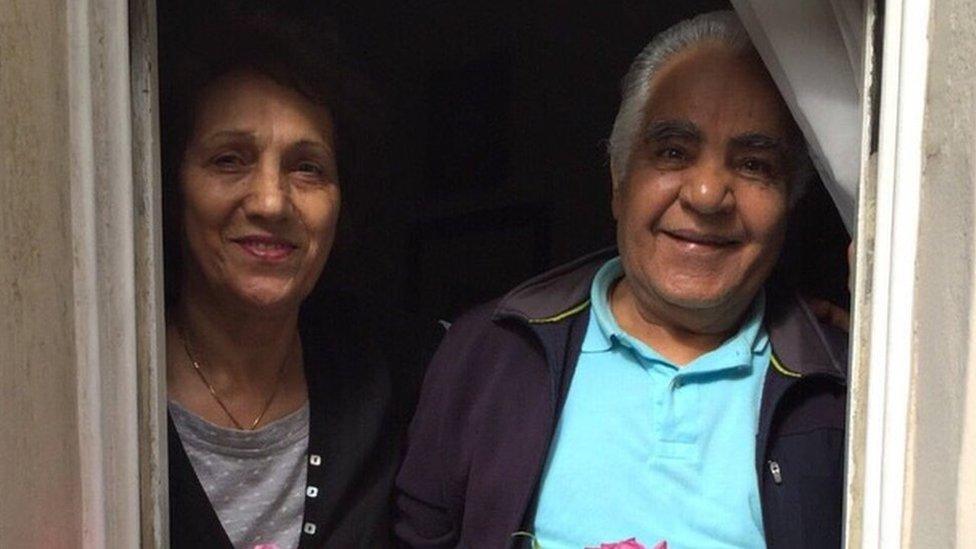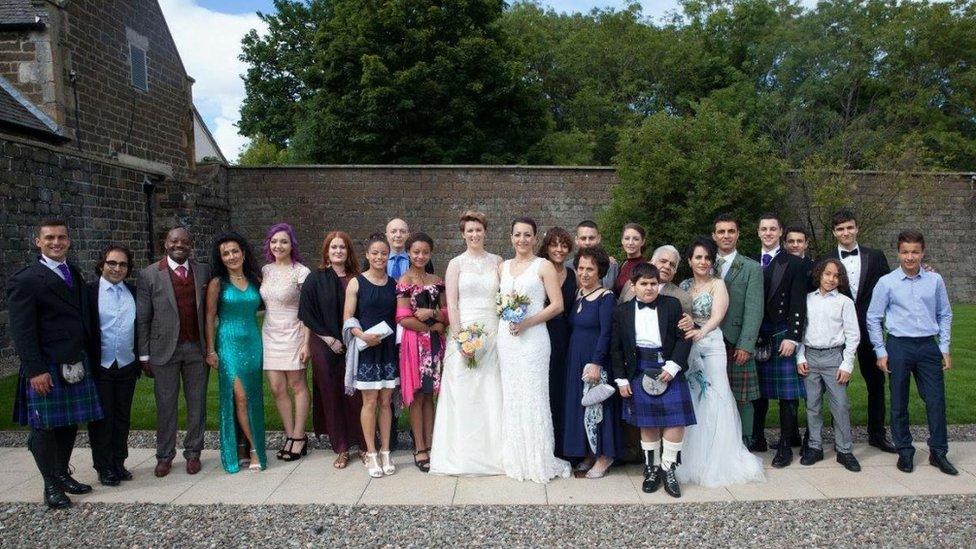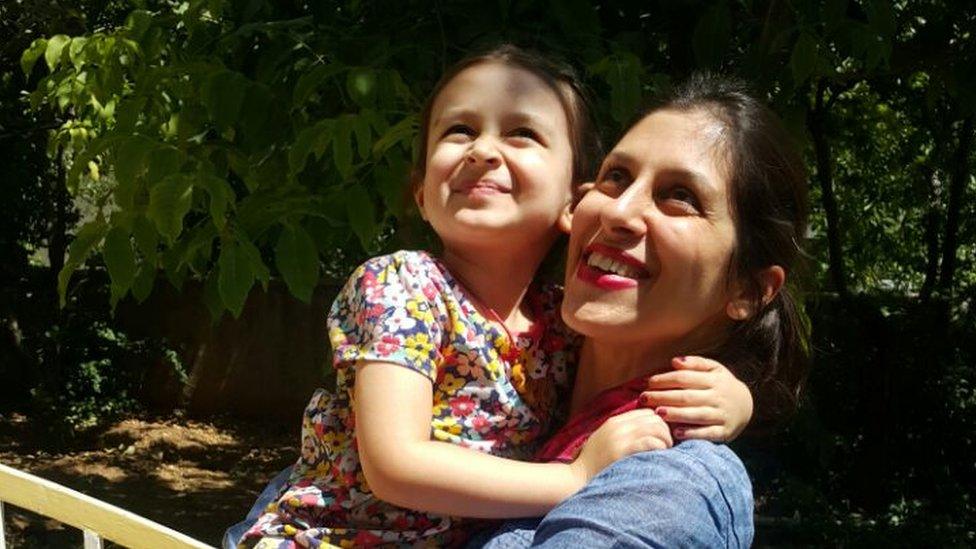'Frail' Edinburgh couple face removal to Iran
- Published

Rezvan Habibimarand and Mozaffar Saberi
A lawyer for an elderly Iranian couple fighting removal from the UK has said they face spending "living the rest of their days without their family".
Mozaffar Saberi, 83, and Rezvan Habibimarand, 73, bought their Edinburgh flat in the late 1970s.
While they have lived in the city on and off for 40 years, they never sought UK citizenship.
Their legal team claim the couple should be allowed to remain on human rights grounds.
They argue that they depend on support from nearby family and also play an important role caring for their severely autistic grandson.
The Home Office has said they have no right to remain. Their final appeal against removal is due on 25 February.
Since April 2000, Mr Saberi and Ms Habibimarand have held several visitors visas.
However, with their own health deteriorating and their desire to watch their 11 grandchildren grow up, they made a human rights application to stay in the UK in April 2013.

Rezvan Habibimarand and Mozaffar Saberi (seventh and eighth from right) and son Navid Saberi (second from left) at a family wedding
It came less than a year after immigration rules were tightened by then Home Secretary Theresa May.
Two human rights applications have been refused by the Home Office.
The couple's son Navid Saberi told BBC Scotland: "We are not coping very well. It is shocking the level of hostility we get from Home Office - you are treated not like a human, and like a number."
A Home Office spokeswoman said: "All UK visa applications are considered on their individual merits, on the basis of the evidence available and in line with UK immigration rules."
'They would struggle'
Prior to 2012 the couple could have applied to stay under the adult dependant relative rule, which was tightened to reduce "net migration".
John Vassiliou, a partner at McGill & Co Solicitors who are handling their case, said it has become "impossible" for anyone to bring parents into the UK permanently.
He said: "The criteria that have to be satisfied are so severe that I have yet to meet anyone who has been able to meet them.
"And there are difficulties with visiting Iran, you can't just pop over on holiday.
"Mozaffar and Rezvan would struggle greatly - they would have to live out their lives without their children and grandchildren, who are all British citizens.
"They're showing normal things for people their age - frailty, reduced mobility, they take various medications. They do rely heavily on their children, but they still play a very important part in their children's lives on an emotional level.
"A 70 and 80-year-old living out the rest of their days there without their family is really sad."
He said the couple also look after their non-verbal teenage grandson to help their daughter, who is a single parent and an NHS nurse.
The boy's condition means he can only communicate using a tablet and is susceptible to high stress levels, particularly around strangers.
'He needs them'
Months before the couple's second application, a child psychology expert told the Home Office they supported Mozaffar and Rezvan staying in Scotland in a report.
The psychologist concluded: "His grandparents and their residence are essential parts of his social, psychological and physical environment."
However, the second application from October 2016 was refused - a move that prompted the couple's legal team to launch a judicial review.
The Home Office conceded and reconsidered the evidence on their grandson's autism, but again refused the application.
In a letter, officials questioned the couple's ability to care for their grandson when "you both are elderly and require help yourselves".
They also suggested the boy's mother give up work and "seek assistance from social services".
The letter concludes the couple's applications "show total disregard for the immigration laws of the UK".
Mr Vassiliou branded the letter's contents "galling".
On the couple's grandson, he said: "He relies on his grandparents for emotional care. When he's with them, he's relaxed, calm and happy, and when he's without them, he is not.
"Removal would impact everyone in their family, particularly the child and his mother. I don't know if he would understand or know why his grandparents suddenly aren't there."
Mr Saberi's son added: "They asked my sister to seek benefits and use public money which is absolutely shocking. We are all working really hard to provide care, we don't want public funds - that's our obligation and we're happy to do that."They have an emotional connection to all of us - they have three generations here.
"The level of care we provide for them here cannot be provided for them in Iran. They are elderly, if they go back to Iran that emotional and psychological dependency, which is mutual, would not be there."
- Published14 January 2019

- Published14 January 2019
